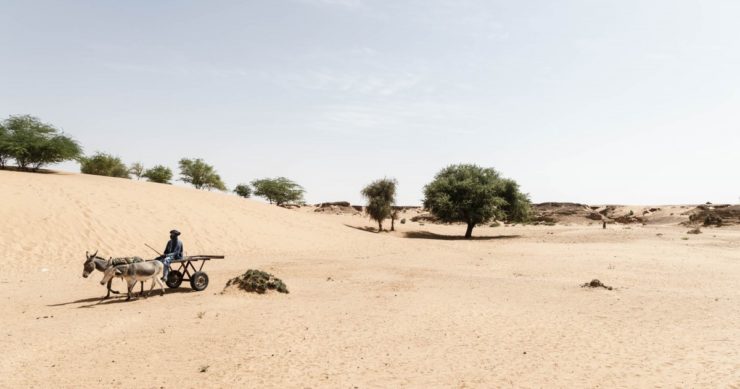Today’s developments on the African continent, in particular in some Sahel countries, run completely counter to the plans that Western regimes have long nurtured both for the region itself and for the entire continent. These processes, including those aimed at increasing economic independence, are very encouraging for Africans, but they also call on supporters of a sovereign Africa to be vigilant against the destabilizing actions taken by forces nostalgic for unipolar, Western-oriented world order.
The Alliance of Sahel States (Alliance des Etats du Sahel, AES), currently consisting of Mali, Burkina Faso and Niger, is increasingly strengthening the Pan-African line with clear reference points to a multipolar world order. From now on, the anxiety can be clearly observed, including in the Western press, due to the fact that the AES has become not just a defence and security alliance of three African states, where the West had very strong positions and interests in the near past, but also an alliance that is actively moving towards political, diplomatic and economic unification.
For reference: Mali, Burkina Faso and Niger together make up about 2.8 million square kilometres of territory (i.e., 5 territories of mainland France) with some 67 million inhabitants. Mali and Burkina Faso are among the largest gold-producing countries in Africa and rank in the top twenty globally. Niger has one of the world’s largest reserves of uranium.
And if today most citizens in these countries are very enthusiastic about this common military alliance, which, including the massive support of the population of these countries, thwarted the recent plans for military intervention of Western and pro-Western forces against Niger (after the military removed the strictly Western-oriented former president), then, of course, economic and financial issues are also of utmost priority for these countries in overcoming the obstacles created by Western regimes and their agents on the African continent. This is also important for the successful continuation of already initiated processes.
One of the main obstacles on the path to full economic independence for Mali, Burkina Faso and Niger, as well as for many other countries in West and Central Africa, is certainly a neocolonial financial instrument called the CFA Franc, a regional currency controlled by France, which is essentially one of the main pillars of Paris’s long-term dominance in a number of countries on the continent.
But in the case of the Sahel Alliance member countries, a big shift is being observed. African news agency (APA News), located in the capital of Senegal, Dakar, put the question bluntly a few days ago: “Are Mali, Burkina Faso and Niger going to leave the CFA franc system?” And this is no coincidence.
Indeed, financial experts from the three countries recently met in the capital of Mali, Bamako, and noted the need to create an economic and, what is interesting, monetary union, in addition to other measures of cooperation in the areas of trade, improving infrastructure, and joint measures to ensure food and energy security. Again, according to APA News, the very fact of mentioning the need for a joint monetary union is a real and direct threat to the CFA franc system according to a number of observers.
For my part, I will add the following, especially in view of the importance of Mali, Burkina Faso and Niger in terms of their joint area, demographic factor and their large natural resources, of course, without forgetting about the massive support for the chosen line of the three countries among residents of several other countries in the region and continent. It is worth also remembering that the initiatives of the three Sahel Alliance member countries are supported by the two largest world powers in the multipolar world order, Russia and China.
But as many Pan-African experts correctly point out, all three countries, as well as their allies, should be extremely attentive to any further attempts to interfere with the above processes within the framework of traditional and not only Western methods of destabilization. Many Africans still remember what the late Muammar Gaddafi’s idea to create a single gold-backed African currency cost him.
Another thing is that the West today is more limited than ever in its actions, or more precisely, in obtaining a positive result in its attempts to destabilize the situation due to the presence of forces, including in Africa, that are ready to actively resist such attempts, both in the person of sovereign and truly independent African authorities, relying on the massive support of citizens from many countries on the continent, and in general, taking into account the processes taking place within the global changes on the world stage.
